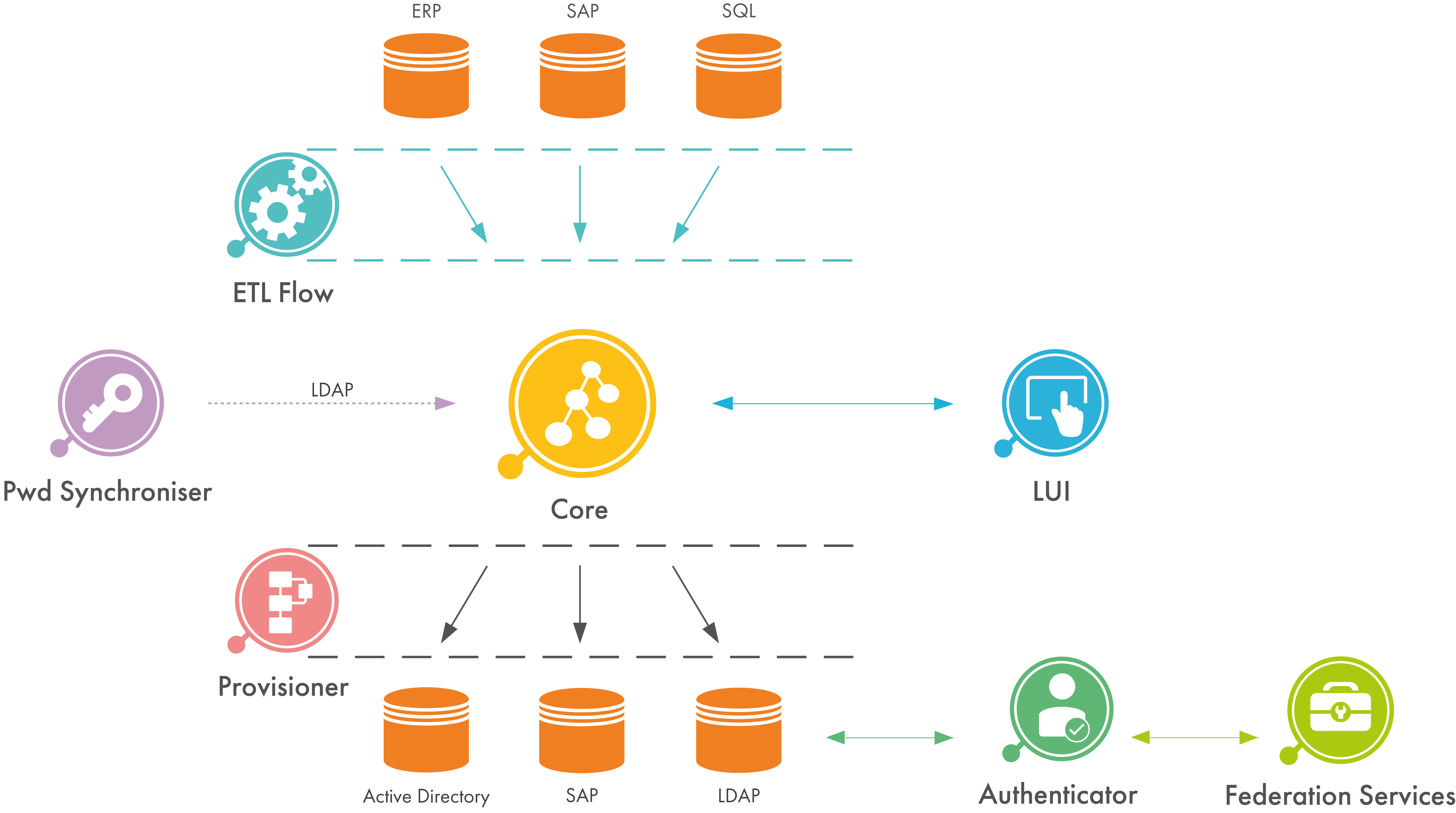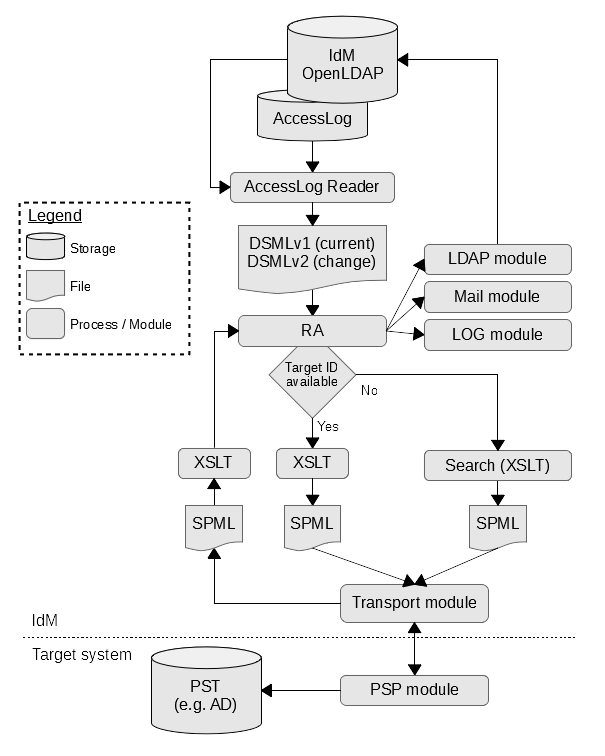Provisioner enables data provision from a metadirectory to any target system (“provisioning”), i.e. directories, databases or specialised applications. All changes are written as a JSON document into the queuing system RabbitMQ. Subsequently, a worker picks them up to apply them to the target system. The respective worker defaults to ICF connectors which enable different interfaces, i.e. SOAP, REST, LDAP or SQL; or even individual connectors to integrate proprietary systems. Also, Provisioner can send changes to multiple target systems simultaneously and is individually scalable to fit any system size.
didmos Provisioner

Provisioner

Structure and Functions
didmos Provisioner serves the event-based provisioning of several target systems. Its architecture is is orientated towards the SPML standard, while also supporting succeeding standards.
The OpenLDAP overlay “AcessLog” logs all changes in the metadirctory as LDAP objects. The so-called Requesting Authority (RA) reads changes in seconds intervals before creating JSON documents accordingly which are then transferred to RabbitMQ. Then, so-called worker nodes implement the PSP (Provisioning Service Point). The worker nodes read the documents and transfer the changes to the target system via a connector framework; in this case a connector framework ICF is used. The JSON document does not only contain changes which are yet to be applied but also documents the status quo as well as corresponding group information. Both, RA as well as worker nodes can be customised according to customer preference.



